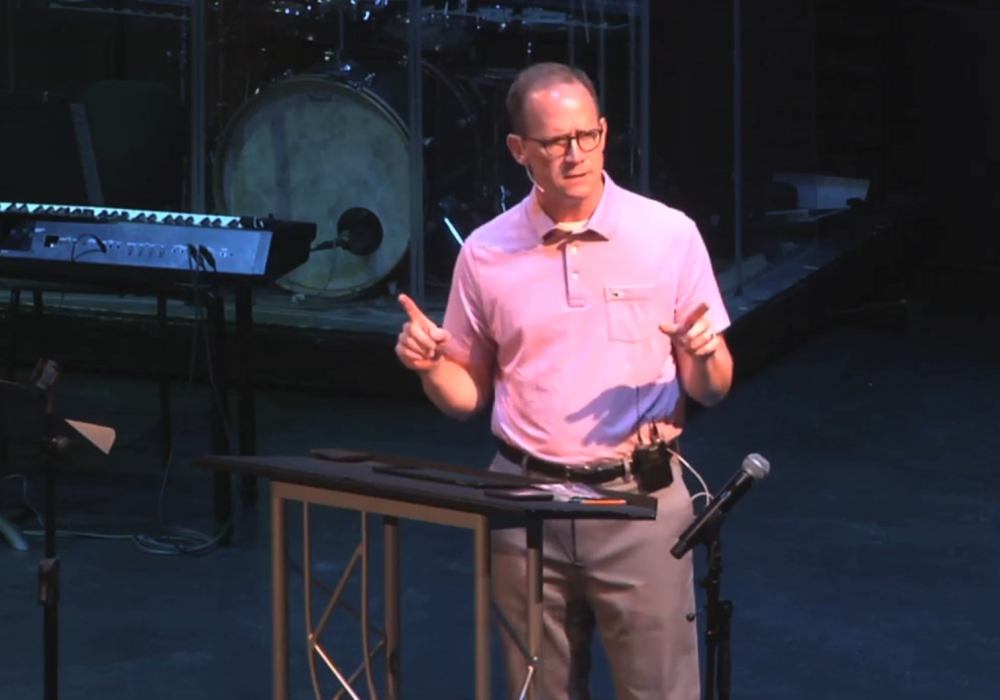Paul in Ephesians 1:23 describes the church as the body of Christ. And in Ephesians 2:20 Paul goes on to explain that Jesus Christ himself is the cornerstone of the church. As if this were not enough, Paul further insists in Ephesians 3:10 that the manifold wisdom of God is being made known, through the church, to the rulers and authorities in heavenly places. In 1 Timothy 3:15 the church is said to be “a pillar and buttress of the truth.”
Q&A
Does Prayer Make a Difference?
David Brainerd observed, “The idea that everything would happen exactly as it does regardless of whether we pray or not is a specter that haunts the minds of many who sincerely profess belief in God. It makes prayer psychologically impossible, replacing it with dead ritual at best.” The answer to the question “Does prayer make a difference?” is definitely, “Yes!”. But let’s consider how and why the Bible teaches us that prayer matters so much.
Why Do Evil and Suffering Exist?
The question of evil and suffering is never a theoretical one. We all experience real and deep pain and wickedness. However, for the Christian believer (who recognizes there is a God), there are only three logical possibilities for the evil things that happen in this world:
Should We Try to Prove God Exists?
Paul contends in Romans 1:18-22 that, although God is invisible, his works are a visible proof of his actions and existence. Everyone realizes, in their heart, that there is a God; but many try to suppress this knowledge even from themselves.
Why Pray Without Ceasing?
Paul briefly exhorts in 1 Thessalonians 5:17 for believers to “Pray without ceasing.” Yet some of us might ask the question: “Why?” Why pray without ceasing? That seems a tall order for busy people who have many life obligations on their plate already. But consider the biblical inducements to prayer by asking yourself a few clarifying and self-examining questions:
Is Christian History Relevant Today?
From a negative standpoint, the neglect of Christian history reflects the incorrect assumption that we have all wisdom in our day and there is nothing to learn from wise men of the past – in effect, that the Holy Spirit has been inactive for the last 2,000 years. Our generation is among the worst when it comes to what C.S. Lewis called “chronological snobbery,” infatuated with the newest thing and suspicious of anything that is old.
Is True Faith an Act of the Will?
True faith is an act of the will, in the sense that God gives us a new will in the new birth, along with faith (John 1:12-13; Ephesians 2:8). God does not make us robots; he successfully woos our hearts. Faith is not merely an act of the will, because it is also the act of the Holy Spirit in our souls, drawing us to Jesus Christ, and bringing us to trust in him as he is revealed in his Word (James 1:18).
How Can I Discern God’s Will?
While every decision, whether large or small, is going to have its own distinct set of challenges, there are three basic principles that we should apply in every life situation. This does not mean discerning God’s will always be easy, but God does promise to lead us, in his own good time and way, when we apply these principles faithfully!
Why Fight Sin If Salvation Is Sure?
I discipline my body and keep it under control, lest after preaching to others I myself should be disqualified (1 Corinthians 9:27). Paul, writing to the church at Corinth to correct their problems, confesses that he himself has to be careful to avoid sin. In fact Paul intimates he goes to great lengths — disciplining his body, keeping himself under control — to avoid the pitfalls of willful sin. But why? Did Paul not believe in the perseverance of the saints, or in the eternal security of believers?
What Is the Book of Revelation About?
The book of Revelation is perhaps the most controversial book in the Bible among Christians. Even sincere, Bible-believing Christians seem to come up with more widely varying interpretations of this book than of any other passage or prophecy. The variety and severity of these disagreements can be intimidating or discouraging to the simple reader, who may feel that there is no one Truth to be found within its mysterious pages. But it is vitally important to remember that God did not inspire the writing of Revelation to bring confusion, but hope and joy to his suffering church.
What Should I Be Giving To Financially?
Our first and primary obligation is certainly to the local church. The Bible is very clear on the fact that we are to financially support those pastors who minister to us spiritual things, by ministering to their physical needs (1 Corinthians 9:7-11; 1 Timothy 5:17-18). The Scripture is equally plain regarding our obligation to support the poor and needy within the body of Christ (1 Timothy 5:16; 1 John 3:17).
FAQ: Why Is Jesus’ Birth So Important?
This series of brief videos offers bite-sized, meaningful answers to commonly asked questions. We hope they will be a help to you! Please also share them freely. If you would like to submit a question of your own, please note the contact info at the conclusion of the video. We look forward to hearing from you!
Is the Sabbath Command Still Relevant?
The fourth of the Ten Commandments is found in Exodus 20:8-11, encapsulated with “Remember the Sabbath day, to keep it holy…” Some well-meaning Christians contend that this command is no longer applicable to us today because we are “not under law but under grace” (Romans 6:14), and because some see Christ as the fulfillment of this law per Colossians 2:16-17:
Why Do Bad Things Happen to Christians?
This series of brief videos offers bite-sized, meaningful answers to commonly asked questions. We hope they will be a help to you! Please also share them freely. If you would like to submit a question of your own, please note the contact info at the conclusion of the video. We look forward to hearing from you!













